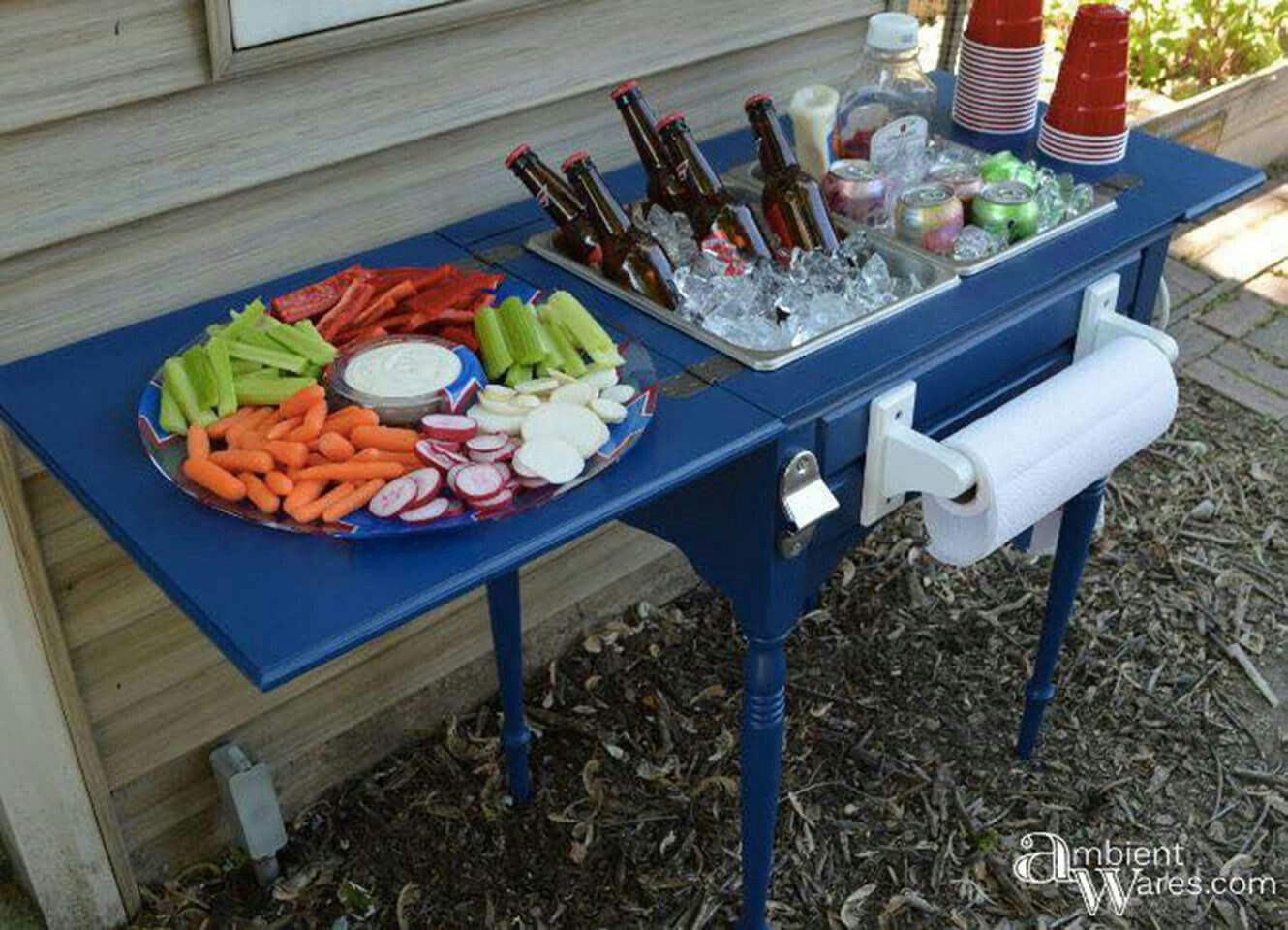44 Ideas To Help You Save Money Easily.
If you're like me, you're always looking for a way to save a little extra money.
The idea is great: where do you start to save money fast?
And, even better, how do you go about building a relief fund (that is, saving money for tough days)?
Here are 44 tips that will finally allow you to reduce your expenses and save money.

Basic rules
Keep your pieces yellow. Here's a great little calculation: set aside € 0.50 every day. In just one year, that's almost 40% of a € 500 relief fund! It allows you to put money aside, without too many constraints.
Watch your spending. At least once a month, take the time to sit down and carefully go through your bank statements. Analyze all of your expenses to see if they are REALLY necessary. Then ask yourself the following question: "Were all these expenses really essential? Or could some of them have gone into a relief fund?"
Wait 2 days before making a large purchase. To avoid buying unnecessary things, wait 48 hours before making the purchase. This is a good tip for not having any regrets. And, instead of having made an unnecessary expense, why not add to a relief fund? :-) Check out the trick here.
Avoid bank card fees. If you use a credit card, limit your purchases to what you can pay off before the end of the month. It saves you from having to pay exorbitant interest rates.
If you use a bank card, your bank will probably allow you to have an overdraft. This is handy for troubleshooting, of course. But get rid of the bad habit of depending on this overdraft. It will save you from repaying the premiums. These fees are avoidable and would be more useful in a relief fund, right?
Establish a budget. Looking for an efficient way to budget? Here's how: keep ALL of your receipts for 1 full month. At the end of the month, analyze the expenses made. This will immediately give you an overview of your expenses! And you will be able to save on your budget more easily.
Go to the dentist regularly. Personally, I go to the dentist twice a year, for a simple scaling and cleaning of teeth. Above all, these regular visits make it possible to identify cavities well in advance and avoid other more expensive treatments. Indeed, it is not cheap, a crown!
Watch your spending. Most people don't watch their spending at all. Results ? Well, they're spending more than their budget allows. Ouch!
Here is the solution to closely monitor your expenses: very simple envelopes! Set a budget for each of your expenses: transportation, shopping, entertainment, etc. Then put the money you need for each expense in envelopes. It's a safe and convenient way to avoid going over budget! Plus, it allows you to set aside the money you haven't spent at the end of the month. This technique allows maximum savings. Check out the trick here.
Take advantage of your works council. Did you know that your employer is required to cover part of your transportation costs? Often, you can also take advantage of discounts on gym memberships, movie tickets, etc. Check with your employer's HR manager to find out more about the services that are supported.
Evaluate if you can afford a purchase. Here's a great way to figure out if you can really afford a "little treat". Set aside the amount you are used to spending for a little treat.
Concrete example: you buy yourself something that makes you happy (1 pack of cigarettes, 1 bottle of wine or 1 pack of beers). Set aside (in a jar, for example) exactly the same amount that you spent on that purchase. If you can't afford the "jar upright", chances are you can't afford that great bottle of Bordeaux that catches your eye! As easy as that.
Evaluate the price of things in hourly wages. Take the price of an item that interests you and divide it by your hourly wage. For example, a pair of shoes costs $ 60 and you earn $ 10 an hour. Are these shoes really worth 6 long hours of your toil? It immediately puts things in perspective, doesn't it?
Focus on short-term savings. You are more likely to be successful in saving money if your goal is short term. It makes sense: setting aside € 10 a week immediately seems easier to achieve than setting aside € 500 a year, right?
Buy wholesale on the Internet. Many vendors and online stores offer shipping costs if the order exceeds a certain amount. Take advantage of this offer by ordering promotional items and non-perishable items. It saves time AND money!
Food
Have your coffee at home. Over the course of a year, the € 2 paid each day for 1 espresso very easily funds a relief fund of € 500. Just have your coffee at home!
Bring your lunch box to work. A lunch bought in the canteen or during the lunch break costs 5 € (and more ...). Preparing a bowl at home costs only 2.50 €.
In 1 year, it easily creates a relief fund of 500 €. The same goes for meals outside: instead of spending € 25 for a restaurant, preparing a small meal at home costs only € 5. At this rate, that's a relief fund of € 500 EACH MONTH! Check out the trick here.
Prepare a shopping list before you go to the supermarket. The important thing is to STAY on the list. People who make (and stick to) a shopping list spend less than those who decide on the spot what to buy at the supermarket. Over 1 year, the savings can be counted in HUNDREDS of euros! Check out the trick here.
Bank transactions
Avoid wooden checks and overdrafts. 20 to 30 € fine for wooden checks and agios! The savings each month on these fines are considerable. They make it possible to finance almost entirely a relief fund of 500 €.
Pay off your credit card payments on time. Paying off your credit card payments saves you € 30 to € 40 in collection costs per month. Over a year, that's a big part of a € 500 relief fund.
Only withdraw money from ATMs at your bank. Check with your bank - withdrawing money from another bank's ATMs can cost you up to € 3 per withdrawal. That represents up to 150 € per year! Check out the trick here.
Insurance
Compare before renewing your insurance. Before renewing auto or home insurance, take the time to compare the market. Also suggest to your insurer to increase the insurance premium (the insurance premium is the price that the policyholder must pay to be able to benefit from insurance cover in the event of a claim). For example, if your premium is $ 100 and you increase it to $ 500, that will drastically reduce your monthly payments.
Life insurance. If your children are no longer dependent on you or if your spouse is employed, it is a good idea to reassess your life insurance coverage. Typically, the savings to be made on more suitable life insurance can FULLY fund a $ 500 relief fund.
Credit insurance. Seriously consider getting rid of your loan credit insurance. Indeed, most borrowers do not need this insurance! Their financial assets are sufficient to protect them in the event of death, disability, or unemployment. Terminating this insurance can reduce financing rates by 3% - a savings of almost € 1,000 for a loan of € 20,000 over 4 years!
Transport
Have your car serviced on time. Regularly drain your car's engine. Remember to check the tire pressure. Over 1 year, these 2 maintenance can save up to € 100 in fuel. Check out the trick here.
Compare fuel prices. Take the time to compare the price of fuel at gas stations in your city. Consult your car owner's manual to find out what type of gasoline to use. Over time, you will save hundreds of dollars in fuel and repair costs. Check out the trick here.
Adopt ecological driving. When driving, avoid frequent acceleration and braking. In the long run, it saves you a lot of fuel and increases engine life. Check out the trick here.
Take a taxi as little as possible. Using public transport instead of taxis saves € 5-10 per trip. If you often take the taxi, that represents a saving that COMPLETELY finances your emergency fund of 500 €.
Compare the prices of airline tickets. When planning a trip, it is important to consult specialized sites that compare airline prices for you. This is a gesture that can save hundreds of euros. Check out the trick here.
Lodging
Don't pay for space you don't need. Do you really need those extra square meters? Assess your space requirements. Also, consider rearranging your house or apartment to use less space. Sort it out at home and keep only the essentials. This will allow you to rent or buy less space - and save! Check out our tips for saving space here.
Try to live a reasonable distance from your workplace. Of course, this is not easy for everyone. But if it is possible, considerable savings are made in transport costs. It is estimated that reducing car trips by 5,000 km per year saves more than € 1,000!
Renegotiate your mortgage. Renegotiation makes it possible either to shorten the duration of the loan, or to reduce repayment charges. Last advice, do not go directly to your banker. Better to go see a competitor and then ask your establishment to match the proposed conditions.
Choose providers with caution. Give preference to plumbers, locksmiths, carpenters, etc. recommended by those around you. Ask that a quote be drawn up before signing the service. Make sure that the quote is at a price fixed in advance and which should not be exceeded. And above all: no full payment until the work is fully completed (and you are satisfied with it, of course)!
Heating
Request an energy balance for your home. Check with your supplier. He is very likely to offer an energy balance for your home - for free! The balance sheet is an economical way to reduce your energy consumption. The savings can be counted in HUNDREDS of euros per year!
Of course, the balance sheet may offer larger investments. Remember that a 3-5 year return on investment saves you a ton of money in the long run.
Protect your home from the elements. Patch all the holes and cracks in your home. These cracks waste warm air in winter and cool air in summer. Just drop by a DIY store. The sellers will be happy to advise you on which products to use - which, as a rule, are affordable.
Use your shutters. The ancients understood the usefulness of shutters. And no, contrary to what my son says, they weren't designed to sleep in.
It is a very simple and efficient way to save energy. In summer, close the shutters to keep the accommodation cool. In winter, open them to take advantage of the warmth of the sun (and close them at night to insulate the windows). These small gestures allow you to save more than 100 € per year. Check out the trick here.
Clothes
Take advantage of sales in factory outlets. Do you know the factory outlets? They are also nicknamed brand centers. They sell the manufacturer's products directly (but be careful, I'm talking about the big brands, eh!) At unbeatable prices. Take the time to do a research to see if there are any in your area. The price difference is mind-boggling. Check out the trick here.
Buy second hand clothes. I often drop by my neighborhood thrift store to check out new arrivals. Frankly worth it. I have found designer clothes in very good condition and at a more than reasonable price. Check out the trick here.
Don't neglect the quality. When you are evaluating a potential clothing purchase, don't forget the quality criterion. An inexpensive shirt or coat is a bad buy if the item is going to wear out after just one year. To assess the quality of the garment, take a close look at the quality of the fabric, stitching and textile care labeling.
Pay attention to cleaning expenses. Do your own laundry and ironing. If your clothes need dry cleaning, take the time to shop around for multiple dry cleaners. For example, a difference of 0.50 € for a shirt represents no less than 100 € if we calculate it for the year.
Telephony
Delete his landline. Telephony has evolved enormously in recent years. As a result, many consumers do not realize that they are paying for plans that no longer suit their needs.
For example, are you still paying for a landline? What is its use when mobile plans offer unlimited subscriptions for less than € 20? Personally, I chose to receive all my calls on my mobile number. It makes my life easier AND saves my landline costs.
Entertainment
Look for inexpensive or free entertainment. A quick search in a newspaper and on the web can pay off very quickly. In my area, I can enjoy theme parks, museums, openings, cinemas, and sporting events - all at great prices. It allows the family to have a good time, without excessive expenses.
Cancel your satellite TV subscription. Calculate the expenses over the year of your satellite TV subscription. Compare this amount to the price it would cost you to rent 1 movie once a week. The savings are far from negligible, right? Check out the trick here.
Borrow the books from the media library. Instead of buying your books, why not take advantage of your media library? Borrowing books and magazines saves you hundreds of dollars a year. Check out the trick here.
Family and friends
Plan gifts well in advance. This should allow you to choose a gift that will really please the person to whom you are going to give it. Not only does it cost you less, but it also makes a unique and thoughtful gift. And if your giveaway needs to buy, you'll have more time to find a good deal if you plan your giveaways in advance. Check out the trick here.
Set a spending limit for gifts in your family. Before giving a gift to your brother or father, agree with him on the maximum price that you are going to spend. This way, you both avoid too much expense. It's a great idea for families on a tight budget.
Plan meals at home. It's always nice to get together for a meal with friends or family. But it doesn't have to be at the expense of your wallet. Why meet at the restaurant? Instead, organize a Spanish hostel for a nice, inexpensive atmosphere!
Do you like this trick ? Share it with your friends on Facebook.
Also to discover:
29 Easy Money-Saving Tips (And No, You Don't Know Them All!)
60 Quick Tips That Will Improve Your Life in the Next 100 Days.










